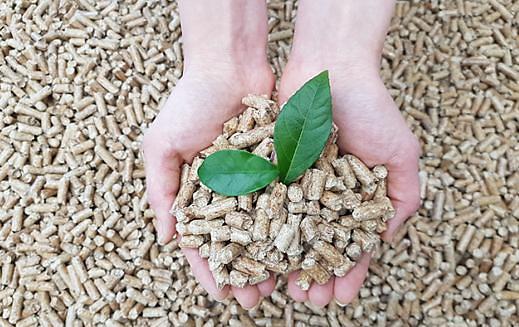
[Courtesy of SGC Energy ]
SEOUL -- SGC Energy and two other domestic power generation companies joined a government campaign to strengthen energy security by using domestic biomass fuel from 2025 instead of imported wood pellets. The three companies have used bio-mix fuel combustion by mixing fossil fuels exceeding 10 percent of the total calorific value.
Pellets are biofuels made from compressed organic matter or biomass. Wood pellets are the most common type of pellet fuel and are generally made from compacted sawdust and related industrial wastes. Other industrial waste sources include empty fruit bunches, palm kernel shells, coconut shells, and treetops and branches discarded during logging operations.
SGC Energy, Hanwha Energy, and OCI SE signed an accord on September 1 with the state-run Korea Energy Agency on the sunset of renewable energy certificates (RECs), which are tradable, non-tangible energy commodities. As a result, some 1.6 million tons of imported wood pellets worth 240 billion won ($207 million) a year would be replaced by domestic unused forest biomass including wood that is discarded in the mountains after logging but can be used as energy.
The Seoul government has encouraged companies to adopt clean energy, as part of efforts to achieve zero-carbon by 2050. RECs are given to companies that use at least 20 percent of their electricity produced by renewable energy sources. SGC Energy CEO Park Joon-young was quoted as saying that his company would convert power generation facilities based on the mix of bituminous coal and wood pellets into a system using biomass only by 2025.
According to the Ministry of Trade, Industry and Energy, private companies have favored imported wood pellets because they are cheaper than solar or wind power generation and can easily acquire RECs. As of 2020, ministry data showed that South Korea's dependence on imported wood pellets was 89.8 percent, with about 70 percent of them used by the three private companies.
Considering the design life of existing facilities, the ministry estimated that imported wood pellets worth a total of 2.6 trillion won would be replaced by domestic biomass. Energy Vice Minister Park Ki-young called for measures to activate the utilization of unused forest biomass and organic waste resources and promised to induce distributed power generation systems that use biofuels only.




